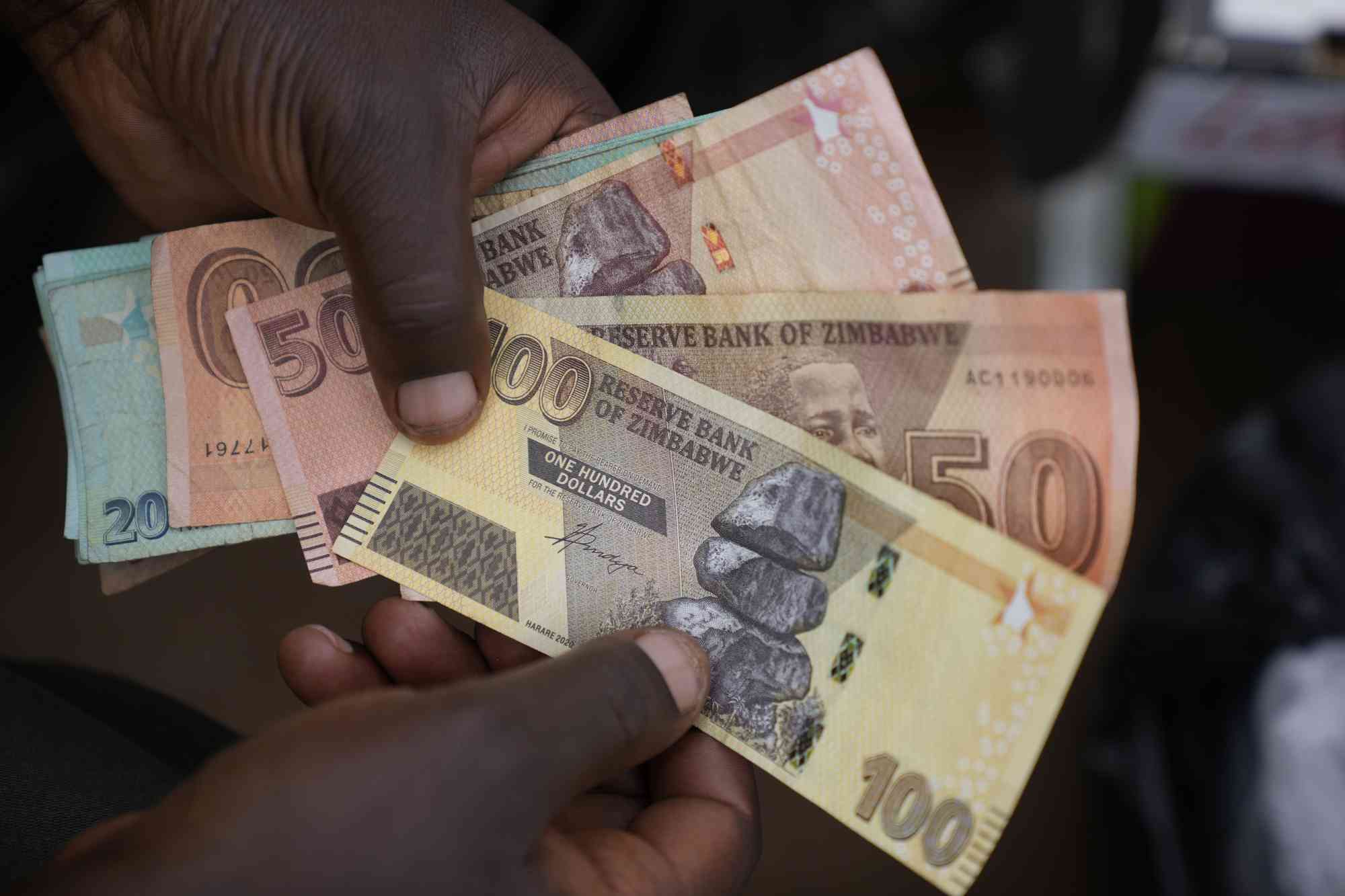
THE Zimbabwe dollar has suffered the worst performance in the first quarter of 2024, compared to corresponding periods since inception.
Resultantly, Zimbabwe has plunged into a hyperinflation at an alarming level. Prospects of stability of this rising threat remain murky, which prompts an assessment of the status quo and plausible trajectory.
The Zimdollar has sustained a negative trajectory since being promulgated into an official currency in 2019. The unit has been depreciating against the United States dollar on a daily basis on the Interbank market since last year, and frequently on the parallel market.
However, the periodic jumps on the parallel market have remained wider than the interbank market, which has seen an oscillatory exchange premium rate.
As at March 25, the Zimdollar had shed off -62% and -71% against the US dollar on the parallel market and the interbank market, respectively, since the beginning of the year. Comparatively, the local unit depreciated by -23% and -25% on the two respective market in the corresponding period last year.
The worse-off performance recorded thus far in the first quarter of this year is attributed to an expansion in money supply, particularly amid a delayed monetary policy pronouncement by the Central Bank.
Meanwhile, in the prior year the Reserve Bank of Zimbabwe (RBZ) contracted the monetary policy earlier in the year, which discouraged activity on the currency market, as well as the broad financial markets.
On the other hand, activity has notably increased on both the Interbank and the parallel market in 2024, compared to prior year, with more flexibility on Interbank allowing for a more robust bidding.
- Rampaging inflation hits Old Mutual . . . giant slips to $9 billion loss after tax
- Monetary measures spur exchange rate stability: RBZ
- DPC pays out $139 million
- Zim deploys IMF windfall to horticulture
Keep Reading
Because of this, the formal exchange rate has significantly closed on the gap (exchange premium) against the parallel rate. The premium has trimmed from a high of 86% in the first week of January to 38% as at 25 March, which is below the year-to-date average premium of 45%.
The exchange premium directly impacts or determines arbitrage activities. A wider exchange premium means wider arbitrage opportunities, and vice-versa. Therefore, despite a rampant exchange rate depreciation this year, the negative impact of informalising the economy is less severe compared to same period last year.
As at the final week of March 2023, the exchange premium stood at 62%. In this regard, companies, particularly retailers, in the formal sector were almost twice at exchange rate risk in the first quarter of 2023 than in 2024.
This is because regulated businesses are mandated to accept the Zimdollar as a legal tender, and are therefore susceptible to exchange losses, which are partially attributed to the difference in currency valuations on the two different markets. Therefore, a milder premium means a lesser risk of exchange loss.
Meanwhile, amid the dual currency regime, service and goods providers resorted to the hard currency as the base pricing unit, while the Zimdollar pricing is dependent on the exchange rate. Therefore, exchange rate movement has a positive correlation with inflation (change in overall prices).
The staggering jump in exchange rate in Q1 2024, therefore, led to an even wider jump in Zimdollar inflation. The Zimdollar inflation jumped by a circa 54,7% in January, and 217% in February, which is a hyperinflation territory.
Increased money supply, therefore, has a bearing on increasing activity on the currency market thus impacting inflation through value-chasing based pricing. On the other hand, increased money supply also leads to increased overall spend as Zimdollar holders seek hedging in alternative assets or products.
Thus, going forward, the current hyperinflation and exchange rate trajectories will only be exacerbated or halted by the intervening of the Central Bank through the much-awaited monetary policy stance.
Continued silence on the stance will worsen sentiment through speculation and uncertainty-driven activities particularly on financial market particularly the currency market.
- Duma is a financial analyst and accountant at Equity Axis, a leading media and financial research firm in Zimbabwe. — twdumah@gmail.com or tinashed@equityaxis.com, Twitter: TWDuma_










